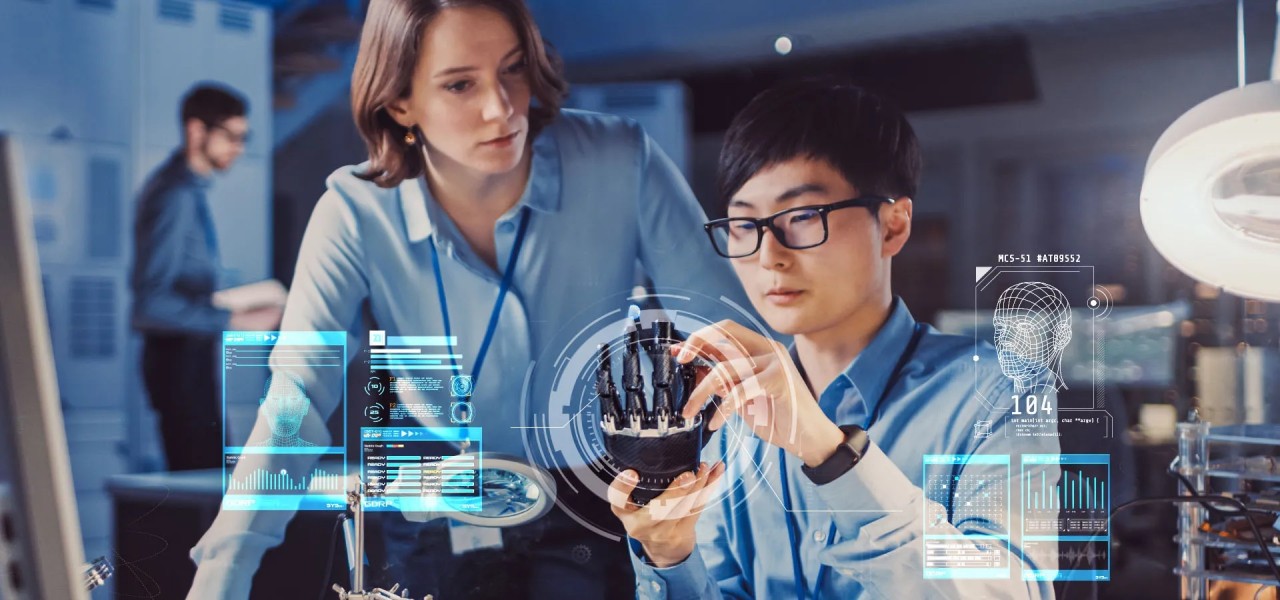Next-gen simulation is key to address our planet's most critical problems
Simulating complex ecosystems with virtual twins and embedded knowledge lets us face new problems with more effective tools, says Dassault Systemes
While many software houses today propose virtual environments as yet another technological revolution, at Dassault Systemes, virtual has been a common thread for forty years. Since the French company launched advanced 3D design and then amrried it with prototyping, simulation, and finally virtual twins.
For Dassault, therefore, the virtual is extremely concrete. "Technology exists because it has a purpose, it doesn't exist in a vacuum", explains Olivier Ribet, Executive Vice President EMEAR at Dassault. And technology - in this case, simulation - must bring tangible value. Now the evolution from 3D to virtual twin goes a step further with the "virtual twin experiences". In short, simulating not only an object or a system but also the environment where it is embedded and the experiences of those who use it.
Virtual twin experiences are now an essential tool to address the most critical problems of our planet. Creating virtual twins of the ecosystems revolving around simple products, complex systems and entire organizations means being able to optimize them with simulations and development hypothesis. In a trial-and-error process that lives in the virtual space and gives us previously impossible margins for maneuver.
The development of anti-Covid vaccines is the best example of how simulation can be a game changer: doing in a few months what would normally have taken years of clinical trials. This experience needs to be extended everywhere if we really want to address the challenges we face - most notably, climate emergency mitigation - while gaining the one and only resource we cannot control: time.
It is no coincidence that Green Transition is now among the biggest growth drivers for Dassault. For example, "companies in the European energy sector are reinventing how their infrastructure is designed and built, moving away from models that date back some 20 years and are ill-suited to new scenarios", Ribet says. Then there is the growing European interest in hydrogen as an energy source. Or the aviation sector's willingness to phase out classic fuels and move to greener alternatives.
Sharing knowledge through simulation
These are all wide-impact technological evolutions, not easy to complete and certainly expensive. But they are also inevitable, because "the cost of not doing them is even greater", Ribet points out. The good news? "In Europe we have an immense concentration of knowledge that stem from millennia of design and engineering experience", Ribet explains. A knowledge that can be embedded into virtual twins, because they "describe not only the 'what' but also the 'how' and 'why' of an object or a complex system".
Integrating knowledge into virtual twins allows it to be preserved and shared. More importantly, it allows knowledge from different domains, which were clearly separated and had no effective way to converge, to be pooled. This new shared knowledge makes it possible to achieve relevant results quickly, addressing design and technical challenges that until recently would not have been feasible.

Francesco Pignatelli
Francesco Pignatelli began his love story with computers and technology at the age of 14, with his ZX81. This led to a career in software development and then in IT and tech journalism. He has spent more than 25 years covering a wide range of IT and tech topics - telecommunications, cyber security, software development, enterprise software, knowledge management - for many of the most important Italian business tech magazines. He is always looking for new digital stuff and still writes unreliable software.
Related news
Last News
RSA at Cybertech Europe 2024
Alaa Abdul Nabi, Vice President, Sales International at RSA presents the innovations the vendor brings to Cybertech as part of a passwordless vision for…
Italian Security Awards 2024: G11 Media honours the best of Italian cybersecurity
G11 Media's SecurityOpenLab magazine rewards excellence in cybersecurity: the best vendors based on user votes
How Austria is making its AI ecosystem grow
Always keeping an European perspective, Austria has developed a thriving AI ecosystem that now can attract talents and companies from other countries
Sparkle and Telsy test Quantum Key Distribution in practice
Successfully completing a Proof of Concept implementation in Athens, the two Italian companies prove that QKD can be easily implemented also in pre-existing…
Most read
Twilio Announces the Winners of Its First Annual Excellence in Engagement…
Twilio (NYSE: TWLO), the customer engagement platform that drives real-time, personalized experiences for leading brands, today announced the winners…
Middle East Colocation Data Center Portfolio Report 2025: Detailed Analysis…
The "Middle East Existing & Upcoming Data Center Portfolio" database has been added to ResearchAndMarkets.com's offering. This report covers the MEA…
Fiserv to Release First Quarter Earnings Results on April 24, 2025
Fiserv, Inc. (NYSE: FI), a leading global provider of payments and financial services technology solutions, will announce its first quarter financial…
Canva’s Biggest Launch Yet Introduces Visual Suite 2.0 to Redefine Creativity…
Canva, the world’s only all-in-one visual communication platform, today unveiled the Visual Suite 2.0 – the company’s biggest product launch since founding…






